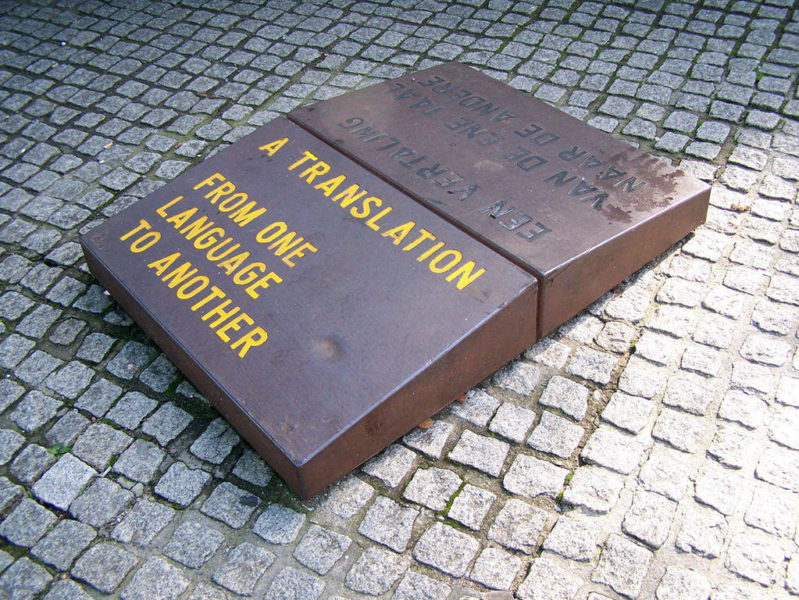Susan Bernofsky began "Fragments and Gestures between Languages in Translation" by discussing her particular choices in translating Jenny Erpenbeck's The End of Days. Issues that arose included how to best translate modernist-inflected fragments that themselves may be paraphrasing other historical or literary documents. A colorful example included the implicit citation by Erpenbeck of an obscure Soviet manual detailing live proceedings in which marxist representatives argued over contemporary definitions of marxism. (Bernofsky raised related issues specifically arising in the English translation--how "Trotskyist" or "Trotskyite" present neutral and pejorative versions of a single German word.) The seminarians then discussed the unusual nature of Germanic syntax from other Erpenbeck excerpts, such as how to properly translate the following literal translation: "he throws up to whom actually does one throw-up/surrender oneself, when one throws up." Suggestions included notions of "surrender," "giving up," and "throwing one's hands up." Bernofsky then moved to Forrest Gander's essay "The Great Leap: César and the Caesura," prompting discussion about "traditions" of translation, and situating translators within self- or other-ascribed traditions.

'From One Language to Another' Lawrence Weiner. Via Wikimedia Commons.
Contributors

Casey Michael Henry
Casey Michael Henry is a Ph.D. student in English at the CUNY Graduate Center. His dissertation explores the phenomenon of "connection" as it relates to late postmodern novels, and the rise of new media narrative, in the 20th century.Henry also worke...
